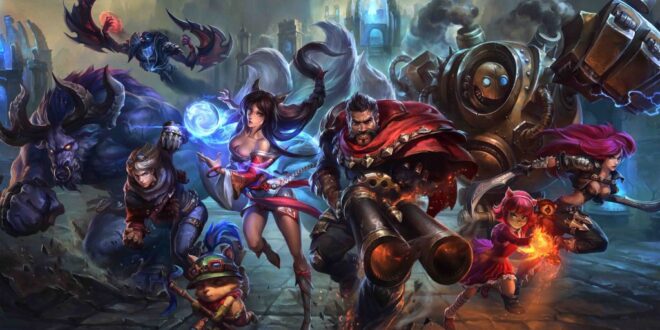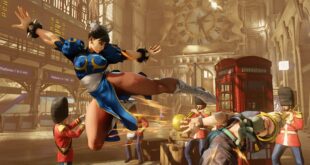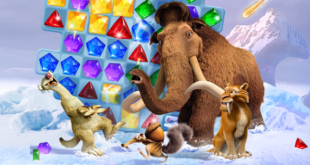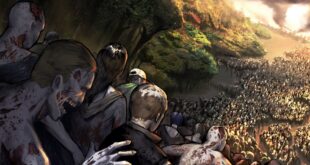ESports, the fast-growing video games as a spectator, has more fans globally than the NBA or Major League Baseball — but marketers and media companies have yet to fully tap into the sector’s opportunity.
Machinima, the YouTube-centric media company catering to gamers and fan culture, has launched an in-house eSports consulting division, MACH-1, to provide proprietary research and analytics, strategic planning and campaign execution.
“Brands have, over 40 years, built up tools to leverage traditional media,” Chad Gutstein, CEO of Machinima, said the digital media firm’s Digital Content NewFronts presentation Friday in NYC. “But for gaming and eSports, marketers are just learning how to use this toolkit.”
Video games have been part of Machinima’s programming for a decade, Gutstein said: “It’s part of our DNA.” The CW aired the finale of Machinima’s third season of eSports docu-series “Chasing the Cup” in February, and is launching a daily eSports news show on Verizon’s Go90.
For marketers and media companies alike, one of the issues is that the eSports world is highly fragmented. Fanbases are clustered around individual games like “Counter Strike: Global Offensive” and “League of Legends” (pictured above).
“There are so many games, fans and communities around each of these titles, if you are trying to become an eSports fan historically you have to pick one,” said Alex Rodriguez, host of Machinima’s “Inside eSports,” who goes by the handle “Axeltoss” online.
Machinima hosted a panel of eSports industry execs to its NewFronts event to discuss the broader opportunity. Sector revenue will grow to $463 million in 2016 and by 2019 could reach $1.1 billion, according to estimates from research firm NewZoo. About 188 million people will competitive video-game matches this year, and that’s projected to grow to 302 million by 2020, according to research outfit SuperData.
“You see these gargantuan metrics around audience growth, and you realize how fragmented it is and how much of a land-grab it is,” said Craig Barry, exec VP and chief content officer of Turner Sports.
Turner and WME-IMG are about to see if they can bring eSports to a broader audience, with the first regularly scheduled competitive video game broadcasts on TV in the U.S. The companies’ ELeague is set to kick off May 24 on digital platforms throughout the week with a Friday night showcase televised live on TBS (weekly at 10 p.m. ET). The tourneys will be staged at a new 10,000-square-foot stadium built at Turner’s studios in Atlanta, delivering a total of 30 hours of live programming each week online and on TV.
Barry’s main concern with the ELeague launch: “I need acceptance from the community that we are legit,” Barry said.
Traditional sports fans are active, but they’re not nearly as engaged as eSports fans, according to Barry. “It’s apples to spaceships,” he said. “If you take an eyedropper and put some eSports content on Reddit, it goes everywhere immediately. As cluttered as this ecosystem is (fans are) just starving for content on a daily basis.”
For Turner and WME-IMG, making eSports more accessible is another part of the mission. Barry said ELeague will feature profiles of top gamers for a mainstream audience “to get emotionally attached,” in the way TV networks have promoted their Olympic Games coverage with heartstring-tugging stories about athletes.
“We need to find, who is the player you love — and who is the one you love to hate,” Barry said. “Who is the LeBron James of eSports? Who is the Stephen Curry?”
But not everyone thinks eSports needs to promote superstar players to succeed. Younger audiences are accustomed to following a myriad of digital personalities, said Mike Sepso, Activision Blizzard’s senior VP of in charge of media networks. “There’s not one big star” in the digital realm, he said. “There are hundreds of YouTube creators who are really big.”
Anheuser-Busch is one marketer diving into the eSports arena. The beer giant has announced the Bud Light All-Stars, which will name five top players from popular gaming titles including “Counter-Strike: Global Offensive,” “Dota 2,” “Heroes of the Storm” and “Hearthstone.”
“We are going to do profiles of these guys,” said Jesse Wofford, digital sports marketing manager for Bud Light. “We want to connect to these fans who know these players — and also people who don’t know they’re fans yet.
But for brands “you have to be careful that you’re adding value,” Wofford said. Fans “can be very, very loyal to you — or they can turn on you if they feel like you are not doing it right.”



